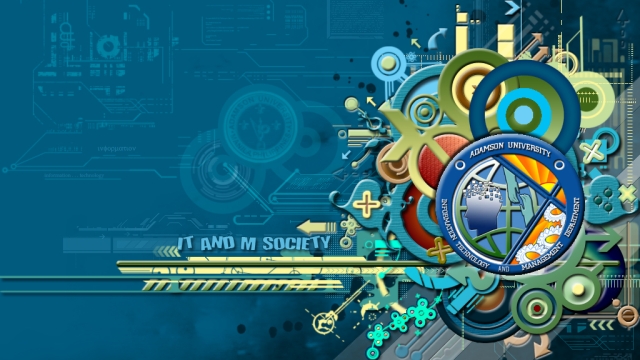In today’s fast-paced and interconnected world, we find ourselves at the forefront of a remarkable era marked by rapid advancements in technology. The digital revolution has not only altered the way we live and connect with one another but has also ushered in a transformative power that has reshaped industries, societies, and cultures across the globe. Technology has become an integral part of our daily lives, permeating every aspect from communication and entertainment to education and healthcare.
With the advent of smartphones, tablets, and computers, the world is now literally at our fingertips. The barriers of distance and time have been shattered, enabling us to effortlessly communicate and collaborate with people from different corners of the globe. Information is readily accessible, and knowledge has become increasingly democratized, empowering even the most remote individuals with the ability to learn, share ideas, and engage in vibrant online communities.
Moreover, technology has revolutionized the way we conduct business and innovate. From e-commerce platforms that have disrupted traditional retail models to machine learning algorithms that have revolutionized industries like healthcare and finance, technology has proven to be an indispensable tool for driving efficiency, productivity, and competitiveness. It has opened up new possibilities, allowing businesses to reach wider audiences, streamline operations, and develop groundbreaking solutions that were once unimaginable.
As we embark on this exceptional digital journey, it becomes crucial to understand the vast potential and far-reaching implications of technology. The transformative power it holds can reshape economies, bridge gaps, and enhance lives. However, it also brings forth inherent challenges such as privacy concerns, ethical considerations, and the need for equitable access. As technology continues to evolve, it is imperative that we navigate this landscape responsibly, embracing the opportunities it offers while addressing the accompanying risks.
In the following article, we will delve deeper into the world of technology and explore the various facets of the digital revolution. From the impact of artificial intelligence and automation to the ethical dilemmas of data privacy and cybersecurity, we will examine how technology has redefined our world and ponder the possibilities that lie ahead. Join us as we embark on an exploration of the transformative power of technology and its profound implications for our future.
The Impact of Technology on Communication
Technology has revolutionized the way we communicate, bringing about significant changes in various aspects of our lives. One area where technology has had a profound impact is communication. With the advent of smartphones, social media, and instant messaging platforms, our ability to connect with others has been greatly enhanced.
Firstly, technology has made communication faster and more efficient. In the past, sending a message or letter could take days or even weeks to reach its destination. However, with the rise of email, text messaging, and video calling, communication can now happen instantaneously. We can effortlessly connect with friends, family, and colleagues across the globe, bridging distances and time zones with just a few taps on a screen.
Moreover, technology has facilitated a wider reach and accessibility of communication. Gone are the days when communication was limited to face-to-face interactions or telephone conversations. Now, anyone with an internet connection can share their thoughts and ideas on various platforms such as blogs, forums, and social media networks. This has opened up a world of opportunities for individuals to express themselves, connect with like-minded individuals, and engage in meaningful discussions on a global scale.
Lastly, technology has also brought about new modes of communication that were previously unimaginable. Platforms like video conferencing and virtual reality have allowed us to have immersive and interactive communication experiences. We can now participate in virtual meetings, attend online classes, and collaborate with people from different parts of the world in real-time. These advancements have not only made communication more convenient but have also transformed the way businesses operate and individuals learn.
In conclusion, technology has had a profound impact on communication, making it faster, more accessible, and enabling new modes of interaction. As technology continues to evolve, we can expect even further advancements in communication, bringing people closer together and reshaping the way we connect and communicate with one another.
Digital Transformation in Business
In today’s rapidly evolving business landscape, digital transformation has emerged as a defining factor for success. Technology has revolutionized the way companies operate, opening up new opportunities and empowering organizations to adapt and thrive in an increasingly digital world.
One of the key aspects of digital transformation in business is the utilization of advanced technologies to streamline processes and enhance efficiency. Automation and data analytics have become crucial tools for organizations, allowing them to automate repetitive tasks and gain valuable insights from the vast amount of data they generate. By leveraging these technologies, businesses can optimize their operations, reduce costs, and deliver better experiences to their customers.
Furthermore, digital transformation has enabled companies to expand their reach and tap into new markets. The rise of e-commerce and digital marketing has created unprecedented opportunities for businesses to connect with customers globally. Online platforms and social media channels have become indispensable tools for reaching a wider audience, promoting products, and building brand awareness. By embracing digital strategies, companies can effectively compete in the digital marketplace and drive growth.
Another significant aspect of digital transformation in business is the shift towards cloud computing and remote work. The adoption of cloud-based technologies has revolutionized the way companies store and access data, providing the flexibility and scalability needed to meet changing business demands. Additionally, the recent global pandemic has accelerated the transition to remote work, with many organizations embracing digital tools and collaboration platforms to ensure business continuity. This shift has not only increased productivity but has also created opportunities for companies to tap into talent pools across the globe.
In conclusion, digital transformation has become a pivotal force driving business growth and innovation. The integration of technology into various aspects of business operations has revolutionized the way companies operate, enabling them to become more efficient, expand their reach, and adapt to changing market dynamics. Embracing digital transformation is no longer an option but a necessity for organizations looking to thrive in the digital age.
Challenges and Opportunities in the Digital Era
The digital era brings forth a myriad of challenges and opportunities, shaping the way we perceive and interact with technology. As we navigate this ever-evolving landscape, it becomes evident that certain obstacles need to be overcome. Conversely, embracing the opportunities that arise allows for transformative changes in various aspects of our lives. In this section, we explore the challenges and opportunities presented by technology in the digital era.
- Mark Majtan
Accessibility and Inclusion:
One of the challenges in the digital era revolves around ensuring equal access and inclusion for all individuals. As technology becomes increasingly integral to our daily lives, it is crucial to bridge the digital divide that separates those with access and those without. This divide not only restricts opportunities for certain populations but also perpetuates existing inequalities. By addressing this challenge and working towards universal access, we can unlock the potential of technology to transform lives on a global scale. -
Privacy and Security:
In an increasingly digital world, safeguarding privacy and maintaining security has become a pressing concern. As technology advances, so do the risks associated with data breaches, hacking, and unauthorized access to personal information. This challenge calls for constant innovation in cybersecurity measures and the development of policies that appropriately balance privacy rights with technological advancements. By creating secure digital spaces, individuals and organizations can confidently harness the power of technology without compromising their privacy. -
Skills and Digital Literacy:
While technology offers immense opportunities, the digital era also requires individuals to acquire new skills and develop digital literacy. This challenge arises from the rapid pace of technological advancements, which often leave certain individuals lagging behind. Embracing the opportunities in the digital era involves equipping individuals with the necessary skills to thrive in a technology-driven society. By investing in education and training programs, we can empower people to fully engage in the digital transformation and leverage technology to improve their lives and communities.

In conclusion, the digital era presents both challenges and opportunities. Overcoming the challenges of accessibility and inclusion, privacy and security, and skills and digital literacy are essential in harnessing the transformative power of technology. By addressing these obstacles head-on, we pave the way for a future where technology serves as a catalyst for positive change, enabling individuals and communities to thrive in the digital era.
